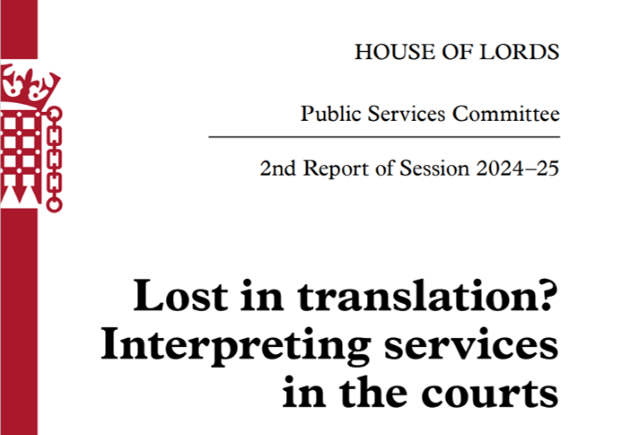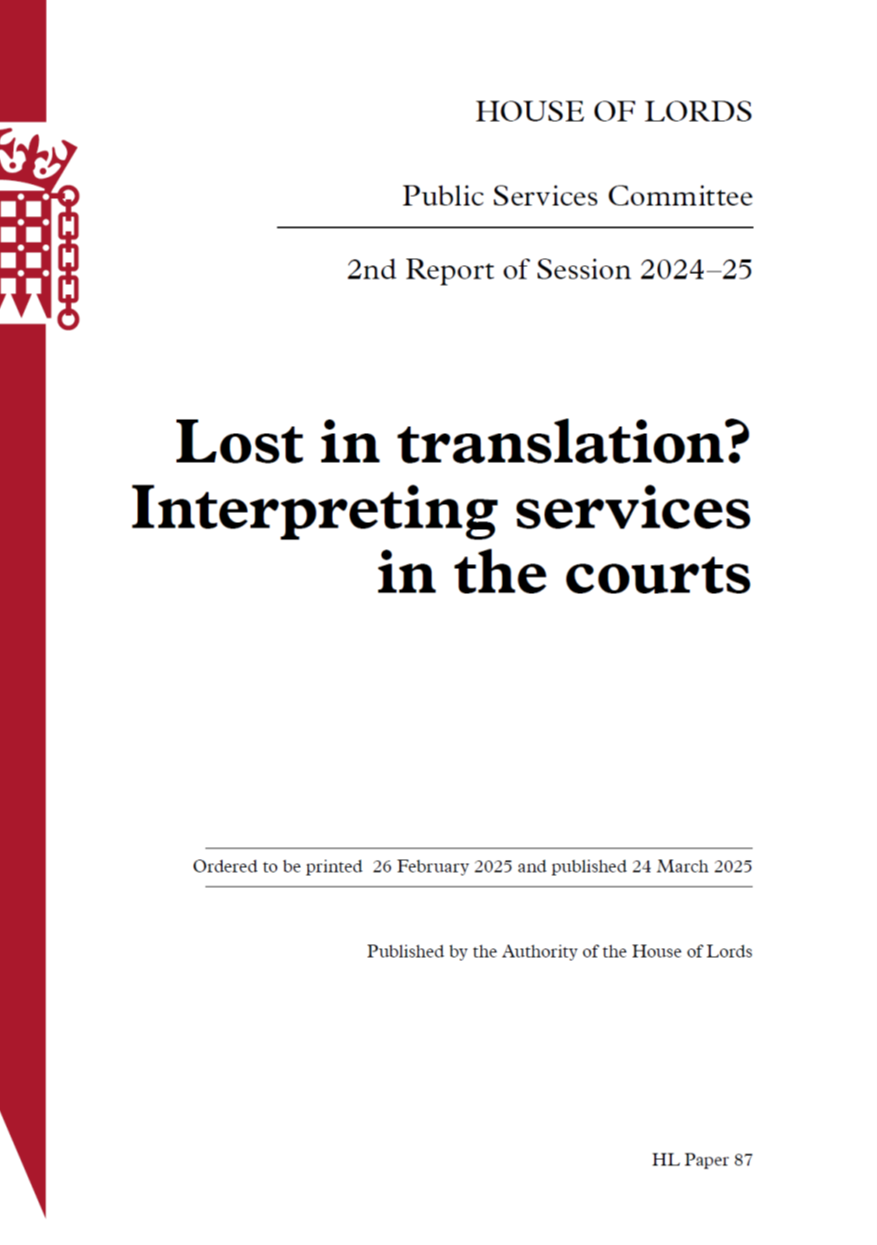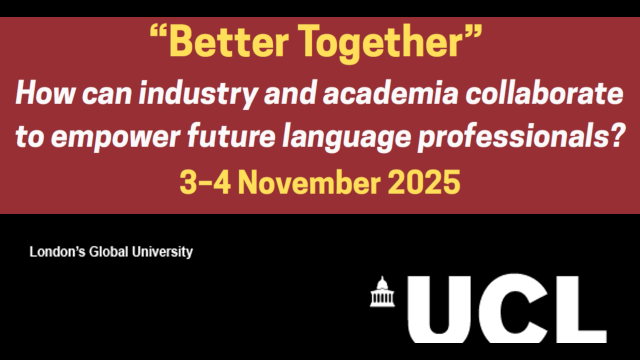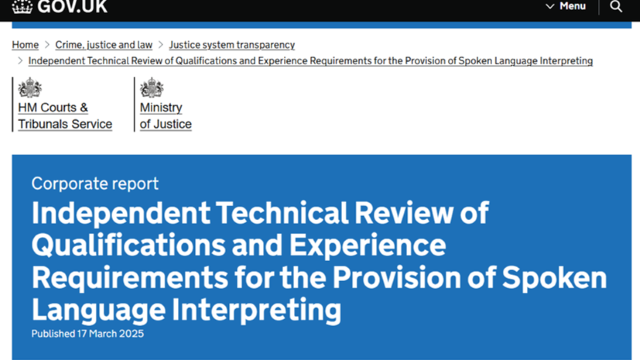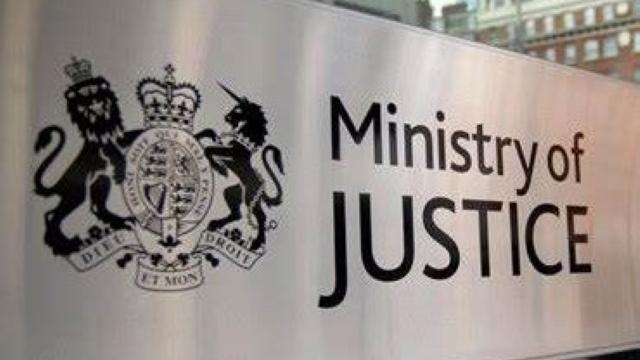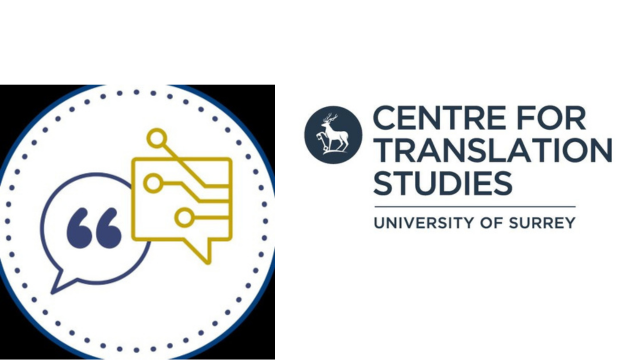-
QUALIFICATIONS
- For Linguists Worldwide
- For UK Public Services
- Preparation
- Policies & Regulation
-
MEMBERSHIP
- Join CIOL
- Membership grades
- NEW for Language Lovers
- Chartered Linguist
- Already a member?
- Professional conduct
- Business & Corporate Partners
-
ASSESSMENTS
- For Second Language Speakers
- English as a Second Language
-
EVENTS & TRAINING
- CPD, Webinars & Training
- CIOL Conference Season 2025
- Events & Networks
- CIOL Mentoring
-
NEWS & VOICES
- News & Voices
- CIOL eNews
- CIOL Awards
- The Linguist
- Jobs & Ads
-
RESOURCES
- For Translators & Interpreters
- For Universities & Students
- Standards & Norms
- CIOL & AI
- All Party Parliamentary Group
- In the UK
- UK Public Services
- Find-a-Linguist
Lost in Translation? House of Lords Report on Interpreting in the Courts
Lost in translation? Interpreting services in the courts
The UK House of Lords Inquiry into Interpreting and Translation Services in the Courts has now reported available here and below.
In the report summary, key points include:
Official statistics indicate only 1% of the small number of cases involving an interpreter receive complaints. However, the evidence gathered during this inquiry from interpreters and legal professionals indicates much wider issues, and leads us to conclude that the current state of interpreting services in the courts is not working efficiently and effectively, and presents a significant risk to the administration of justice in these cases.
The MOJ’s published data masks problems in the service due to both data omissions and a complaints process which causes under-reporting of problems. This is exacerbated by difficulties in recruitment and retention of the interpreter workforce. Wider technology issues in the courts limits the effective use of innovations such as remote interpreting or interpreting booths, and leaves the justice system unprepared for innovations in newer technologies.
These are solvable problems. The MOJ is currently in the process of negotiating a new contract for these services up until 2030. It must use the opportunity of the contract renewal to reform the profession so that it becomes a desirable career for highly skilled, well-respected and adequately remunerated interpreters.
We believe this is a moment of both risk and opportunity for interpreting in the courts. If the MOJ seizes the opportunity of the new contract it can improve the quality and transparency of the service, while preparing for the future both in terms of technology and the future workforce. Do nothing, and the Government risks reinforcing significant jeopardy to justice for the foreseeable future.
The Chartered Institute of Linguists' evidence is widely referenced in the report, including this central point:
“The fundamental issue is that people need to earn enough as public service interpreters to pay their bills and make a living”.
To read the full report click on the image below:
Filter by category
More
The Chartered Institute of Linguists (CIOL), Incorporated by Royal Charter, Registered in England and Wales Number RC 000808 and the IoL Educational Trust (IoLET), trading as CIOL Qualifications, Company limited by Guarantee, Registered in England and Wales Number 04297497 and Registered Charity Number 1090263. CIOL is a not-for-profit organisation.

